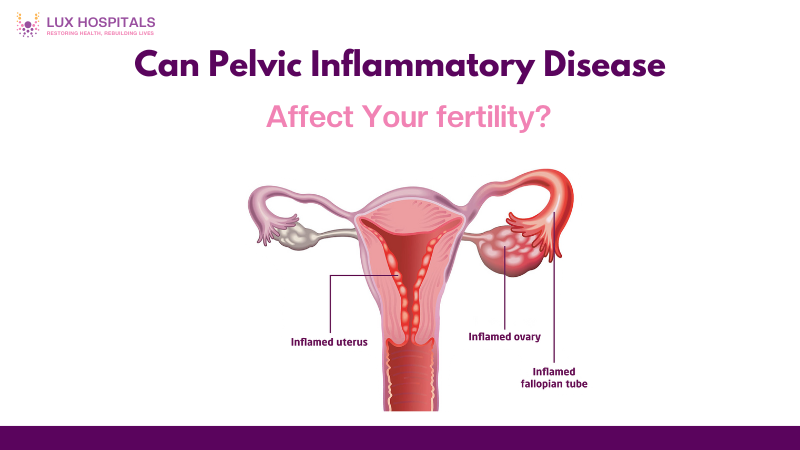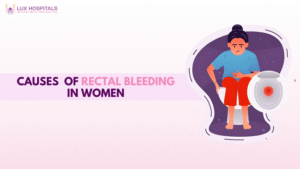Pelvic Inflammatory Disease and Fertility: What Every Woman Should Know

Fertility and Pelvic Inflammatory Disease. One of the primary health concerns for women is an inflammatory illness of the pelvis, particularly for infertile women. There could be serious repercussions if therapy for a female reproductive organ infection is not received, including chronic pelvic pain, ectopic pregnancy, and infertility.
Maintaining reproductive health and guaranteeing prompt medical action demand comprehension of the causes, signs, and available treatments for pelvic inflammation.
What Is Pelvic Inflammatory Disease?
Female reproductive organ infections are known as pelvic inflammatory diseases. Often caused by sexually transmitted germs that travel to the uterus, fallopian tubes, or ovaries from the vagina.
Common culprits include chlamydia and gonorrhea. However, other bacteria can also cause pelvic inflammatory disease, especially after childbirth, abortion, or pelvic procedures. Acute or chronic conditions are both possible, with varying symptoms and severity.
Symptoms of Pelvic Inflammatory Disease
Symptoms of pelvic inflammatory disease can range from mild to severe and may include
- Lower abdominal or pelvic pain
- Abnormal vaginal discharge with an unpleasant odor
- Irregular menstrual bleeding
- Pain during intercourse
- Fever and chills
- Painful or difficult urination
- Fatigue
Because pelvic inflammatory disease can occasionally be asymptomatic, routine checkups are crucial for early diagnosis and treatment.
How Does Pelvic Inflammatory Disease Affect Fertility?
Pelvic Inflammatory Disease (PID) can significantly affect a woman’s fertility.
The infection can lead to scarring and blockage of the fallopian tubes, preventing the egg and sperm from meeting.
This tubal damage increases the risk of infertility and ectopic pregnancy, where a fertilized egg implants outside the uterus.
Studies show:
- After one episode of PID, the risk of infertility is around 12%.
- With each additional episode, the risk increases.
- After three or more episodes, the risk may reach up to 75%.
Therefore, early diagnosis and timely treatment are crucial to protect and maintain fertility.
Diagnosing Pelvic Inflammatory Disease
- Medical history, physical examination, and laboratory testing are used to diagnose pelvic inflammatory disease.
- Medical professionals may perform a pelvic exam to look for discharge and soreness.
- Laboratory testing can identify sexually transmitted illnesses.
- Imaging procedures, including laparoscopies or ultrasounds, could be necessary to assess the severity of the disease.
Treatment Options for Pelvic Inflammatory Disease
Treatment for pelvic inflammatory disease (PID) typically involves a course of antibiotics to eliminate the infection.
Even if symptoms improve early, it’s essential to complete the entire course of antibiotics.
In severe cases or when abscesses are present, intravenous (IV) antibiotics and hospitalization may be required.
If PID causes significant damage to the reproductive organs, the following may be necessary:
- Surgical intervention
- In vitro fertilization (IVF)
- Other fertility therapies
Preventing Pelvic Inflammatory Disease
Preventing pelvic inflammatory disease involves reducing the risk of sexually transmitted infections and maintaining good reproductive health. Here are some preventive measures:
- Practice safe sex
- Limit the number of sexual partners.
- Get regular screenings for sexually transmitted diseases.
- Ensure any pelvic procedures are performed under sterile conditions.
- Get medical help right away if you’re having signs of an infection.
Conclusion
Pelvic inflammatory disease is a dangerous but avoidable disorder that can significantly damage a woman’s fertility. Protecting reproductive health requires early detection, prompt treatment, and preventive actions. Women can take control of their health by being aware of the dangers and keeping up with symptoms. If you think you could have inflammatory pelvic disease, consult a healthcare provider without delay to avoid long-term complications.
FAQs
Can you get pregnant after having pelvic inflammatory disease?
After healing from pelvic inflammatory disease, many women can conceive, particularly if the illness was identified and treated early. However, the more severe and recurrent the infection, the higher the chance of infertility. To maintain fertility, timely treatment and routine medical examinations are crucial.
What are the long-term effects of untreated pelvic inflammatory disease?
Untreated pelvic inflammatory disease can lead to chronic pelvic pain, infertility, and ectopic pregnancy. The infection can cause permanent harm to the reproductive system that prevents or hinders natural conception. To avoid these problems, early diagnosis and treatment are essential. To avoid these problems, early diagnosis and treatment are crucial.
Is pelvic inflammatory disease contagious?
While pelvic inflammatory disease itself is not contagious, the bacteria that cause it, such as chlamydia and gonorrhea, are sexually transmitted. The risk of pelvic inflammatory disease can be raised by having unprotected intercourse with an infected partner. Practicing safe sex and regular STI screenings can help prevent the condition.
Can men get pelvic inflammatory disease?
Men cannot develop pelvic inflammatory disease, as it affects female reproductive organs. However, men can carry and transmit the bacteria responsible for the condition. Sexual partners of women diagnosed with pelvic inflammatory disease need to get tested and treated to prevent reinfection.
Can pelvic inflammatory disease cause ectopic pregnancy?
Yes, the likelihood of an ectopic pregnancy can be considerably raised by pelvic inflammatory disease. A fertilized egg’s normal journey to the uterus may be impeded by the infection’s potential to damage and scar the fallopian tubes. An ectopic pregnancy, a dangerous medical condition that needs to be treated right away, could arise from the egg implanting in the fallopian tube itself.



















